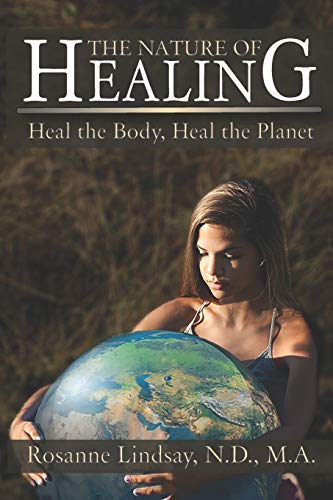 By Rosanne Lindsay, Naturopath
By Rosanne Lindsay, Naturopath
As much as we have tried to fuse science with medicine, much of the practice of medicine is not scientifically based. Much of what the physician does in practice is dictated by authority. – F.H.K. Green et al, Lancet, 1954
 There is suddenly a lot of interest in people who may have received a placebo vaccine.
There is suddenly a lot of interest in people who may have received a placebo vaccine.
According to media reports, scientists have uncovered evidence that a large quantity of the Pfizer-BioNTech COVID-19 vaccine deployed in the European Union may in fact have consisted of placebos – and that the German regulator knew this and did not subject them to quality-control testing. The basis for this assertion is a March 2023 Danish study published in European Journal of Clinical Investigation.
However, the evidence in the Danish study is unclear. The results are based only on color coding of batches (yellow = harmless, blue = very bad, not so bad = green). What did the vials contain? Explain the demographics of the populations (age, sex)? What made up the placebos?
People who opted to get an experimental vaccine in the U.S. may rightly wonder if they, too, got a placebo or something else. A placebo is supposed to be harmless, used for experimental purposes to identify a legitimate baseline or control group.
Placebo definition: a harmless pill, medicine, or procedure prescribed more for the psychological benefit to the patient than for any physiological effect; used as a control in testing new drugs.
However, most people may not be aware that in “Vaccine Science” there is commonly no true placebo for control groups. Thus, there are no true control groups in vaccine trials. That means people receive a false placebo.
Why a false placebo? Because vaccine scientists want everyone to know that they care.
Vaccine Standard of Care
The World Health Organization (WHO) does not want to deprive anyone from receiving the benefit of any vaccine. That would be unethical, says WHO. So, according to the WHO’S Standard of Care, a placebo can be either:
- an older version of the vaccine being tested, or
- an adjuvant such as aluminum hydroxide, an ingredient common to all vaccines to increase a reaction (i.e, side effects).
The vaccine Standard of Care is common to most guidance documents. For instance, an August 2014 Journal Vaccine article titled, “Placebo use in vaccine trials: Recommendations of a WHO expert panel,” states:
…. randomised, placebo-controlled trial designs often raise ethical concerns when participants in the control arm are deprived of an existing vaccine. Furthermore, testing a new vaccine against placebo is scientifically and ethically fraught when the hypothesis being tested is whether an experimental vaccine is more efficacious than one already in use in the same or in other settings.
The False Placebo
The authority on vaccines, The World Health Organization (WHO), recommends using an older vaccine for saline in a placebo.
Meaning, if they are testing a new vaccine it would be unethical to test it against saline when an older, proven safe version exists. So, they can use the older version as the placebo and, therefore, not deprive the study participant of the protection. It is also considered ethical to use an adjuvant in lieu of a vaccine when the vaccine being studied has that adjuvant in it. So, you can use an aluminum adjuvant as a placebo if the adjuvant has been around enough to have been studied for safety.
 An acceptable Standard of Care in vaccine trials means that the control group could receive either another vaccine, such as the Hep B vaccine, or an injection with an adjuvant (i.e., aluminum hydroxide).
An acceptable Standard of Care in vaccine trials means that the control group could receive either another vaccine, such as the Hep B vaccine, or an injection with an adjuvant (i.e., aluminum hydroxide).
Dr. Christopher Exley studies and publishes on aluminum adjuvants in vaccines and their resulting cellular toxicity.
…paediatricians, responsible for administering the vaccine schedule for children, seem in particular, to be uninformed about the properties of aluminium adjuvants and their mode of action in vaccines. This apparent ignorance of the published scientific literature is unexpected in those charged with the wellbeing of neonates and infants and especially in the light of Janeway’s description of alum adjuvant as ‘the immunologist’s dirty little secret’ [2]
Aluminum adjuvants in vaccines are designed to remain in the body. There they trigger a cytokine storm that manifests a sequelae of symptoms known as Autoimmune/autoinflammatory syndrome induced by adjuvants (ASIA). What does this mean?
The adjuvanted placebo is not a placebo at all.
Studies confirm that adjuvanted vaccines that claim to treat infectious disease lead to the development of autoimmune disease: Shoenfeld’s syndrome, autoimmune thyroid disease, neurological disease, and long-term, chronic disease, multiple sclerosis, autism, alzheimer’s disease.
The moral? To give a false placebo means that adverse events between the control and experimental groups in a study show little to no difference. The vaccine is declared “safe and effective.”
A Question of Ethics
The word ‘ethics’ is derived from the Greek word, ethos, which means custom or character. Ethics is the systematic study of values, so as to decide what is right and what is wrong.
However, the justification of clinical biomedical research on humans means definitions can change to suit authorities. In chapter 21 of The Oxford Textbook of Clinical Research Ethics, author Alan Wertheimer writes:
“The value of biomedical research is such that many commentators believe that society has a strong obligation to conduct, support, and otherwise encourage it.”
But what about an obligation to protect its members from harm? The author goes on to refer to a quote by Hans Jonas, professor of philosophy:
Our descendants have a right to be left an unplundered planet; they do not have a right to new miracle cures. We have sinned against them if by our doing, we have destroyed their inheritance.
 Medical doctors take The Hippocratic Oath to help, or at least to do no harm. But does the WHO’s authority supersede ethics?
Medical doctors take The Hippocratic Oath to help, or at least to do no harm. But does the WHO’s authority supersede ethics?
Some in Congress are threatening to defund the authority, the WHO, as it seeks to implement a global pandemic treaty that replaces laws of nations. But is that possible when the U.S. president wants to support and strengthen the WHO?
History proves that the inhumane Tuskegee experiments occurred from 1932-1972, well after the Hippocratic Oath made its initial appearance around 400 BCE.
The evidence of Tuskegee shows how medical doctors do not always take the opportunity to help their patients get well. During Tuskegee, doctors knew how to successfully treat Syphilis, but instead chose to watch their patients suffer and die after lying about the diagnosis and giving a placebo instead of the standard treatment.
Following Tuskegee, in 1979, The Belmont Report set up guidelines and ethical principles. Then, in the year 2000, The Indian Council of Medical Research produced the ‘Ethical Guidelines for Biomedical Research on Human Subjects,’ which were revised in 2006. It gives twelve general principles to be followed by all biomedical researchers working in the country. The latest global guidelines are the International Ethical Guidelines for Biomedical Research Involving Human Subjects.
How many guidelines and principles are required to ensure no harm to human subjects?
Informed Consent
 Informed consent is both an ethical and legal obligation. It is a doctor’s duty to explain and disclose the consequences of treatment and non-treatment. Thus, patients have the right of self-determination.
Informed consent is both an ethical and legal obligation. It is a doctor’s duty to explain and disclose the consequences of treatment and non-treatment. Thus, patients have the right of self-determination.
The Belmont Report stressed three basic ethical principles: 1) respect for person, 2) beneficence, and 3) justice. These were applied in the form of informed consent, assessment of risks and benefits by ethics committees and selection of subjects. However, today we know that patients are not provided full informed consent before agreeing to medical or experimental procedures.
Disclosure of information should include:
- The condition/disorder/disease that the patient is having/suffering from
- Necessity for further testing
- Natural course of the condition and possible complications
- Consequences of non-treatment
- Treatment options available
- Potential risks and benefits of treatment options
- Duration and approximate cost of treatment
- Expected outcome
- Follow-up required
Ethics Vs. Morals
Currently, there is conflicting guidance on how to evaluate the use of placebo controls in vaccine trials.
Most ethical guidelines for research do not address vaccine trials specifically; and, in those that do, the guidance regarding placebo use is limited [2], [3].
Moreover, general ethical guidelines for research – authored by both national and international bodies – offer conflicting guidance on the use of placebo controls [4], [5], [6], [7], [8].
Some guidelines call for exclusion of placebo use altogether when there is a proven or established effective intervention against the condition under study.
The ethics of vaccine science asks why use a true placebo when testing a new product when you can substitute an older product?
However, the morals of vaccine science supersede ethical questions, or so they should.
Use of placebos in certain self-limiting conditions or in patients with high psychological overlay or in those who insist for some form of medication is justified as there are high chances of benefit to the patient with negligible risk. Revealing the truth to the patient takes away the very purpose of administration of placebo.
The authors of the Journal Vaccine study conclude:
The lack of consistent guidance on the use of placebo controls raises significant ethical concern… a lack of clear guidance may result in the conduct of placebo-controlled trials that are ultimately unethical.
Since the time of Hippocrates, human ethics has devolved. Regarding informed consent for any procedure, the question should not be whether you received a placebo, but rather, what is in the placebo?
Source: Nature of Healing
Rosanne Lindsay is a Traditional Naturopath, Herbalist, Writer, and Author of the books The Nature of Healing, Heal the Body, Heal the Planet and Free Your Voice, Heal Your Thyroid, Reverse Thyroid Disease Naturally. Find her on Facebook at facebook.com/Natureofhealing. Consult with her remotely at www.natureofhealing.org. Listen to her archived podcasts at blogtalkradio.com/rosanne-lindsay. Subscribe to receive blog posts via email using the form at the bottom of this page.
Become a Patron!
Or support us at SubscribeStar
Donate cryptocurrency HERE
Subscribe to Activist Post for truth, peace, and freedom news. Follow us on SoMee, Telegram, HIVE, Flote, Minds, MeWe, Twitter, Gab, and What Really Happened.
Provide, Protect and Profit from what’s coming! Get a free issue of Counter Markets today.


Be the first to comment on "The False Placebo"